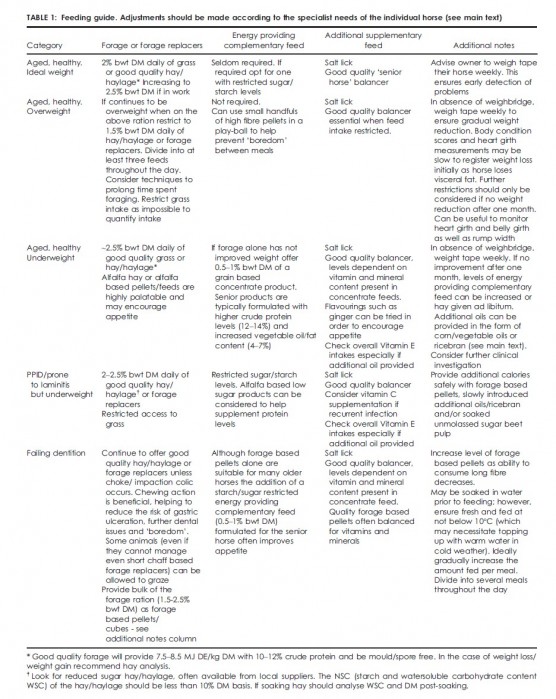
A review of nutritional considerations for aged horses
Some horses age better than others, depending on breed, previous use, and individual variability. Whereas clinical and biological markers best reflect age-related changes, to enable the relevant assessment and ration formulation.
These include a reduction in gut motility, mucosal immune defenses and gut microbial diversity could affecting digestion efficiency, and along with Immune function decline as well as affected inflammatory responses increasing susceptibility to infections and inflammation.
Weight loss usually indicates a medical or social problem, limiting feed consumption, nutrient digestion or absorption. However obesity should also be monitored to prevent related diseases such as Insulin resistance and equine metabolic syndrome. Thermoregulation could also be compromised should be managed appropriately both in extreme weather and during exercise (shelter, rugs, clipping, electrolytes).
Furthermore, clinical signs such as evidence of partially chewed food, halitosis, sinusitis, food pocketing, weight loss, oesophageal choke and colic could suggest a dental problem, which should be treated to maintain health status and body condition.
Whereas, as presented in this review article, old horses could be divided into 4 groups according to their nutritional needs; First, horses who are Young at Heart should be monitored for weight, dental, parasites and vaccination routines, but fed according to activity level and reproductive status. While Aged and Obese horses should be fed with an appropriate weight reduction orientation and monitored closely. However, Aged horses with a tendency to Lose Weight should be thoroughly assessed to eliminate dental issues, hepatic and renal functions, and parasites. As well as provided with a gradual increase of calories and nutrients in the diet through a balanced ration and oil supplementation. Whereas, the Geriatric horse with Concurrent Health and/or Physical Problems should be provided treatment and support for the specific underlying conditions as best as possible. While feeding a ration that reasonably meets nutritional needs and that the horse will consume voluntarily.
Expert opinion by Shirley Ferber
While it is always best to consult with your nutritionist and vet, general ration considerations for healthy aged horses should ideally contain good quality protein, low non-structural carbohydrate (NSC) content, high fiber (as chaff, pellets, mash or soaked if needed), vegetable oil supplementation when needed, divided into 5 daily portions. Or alternatively, a compound complementary feed designed for older horses. Note that joint nutraceuticals are controversial regarding reliability of content and efficacy, while remedial farriery and appropriate use of suitable anti-inflammatories could help support aged horses with generalized osteoarthritis. Simple actions such as feeding from a raised bucket, large holed hay nets, providing shelter and preventing bullying, along with good access to feed and water can considerably improve feed intake and comfort.
> From: Jarvis et al., Equine vet. Educ. 31 (2019) 102-110. All rights reserved to EVJ Ltd. Click here for the online summary.


